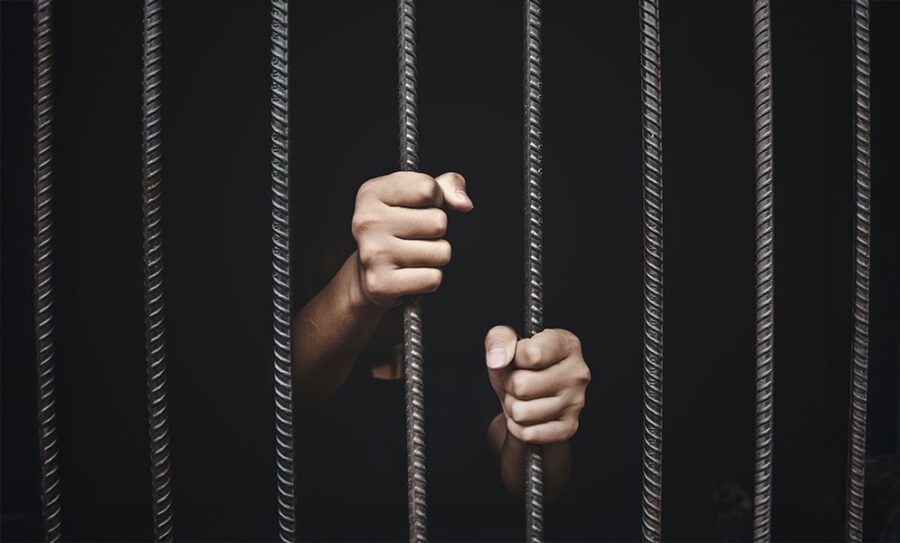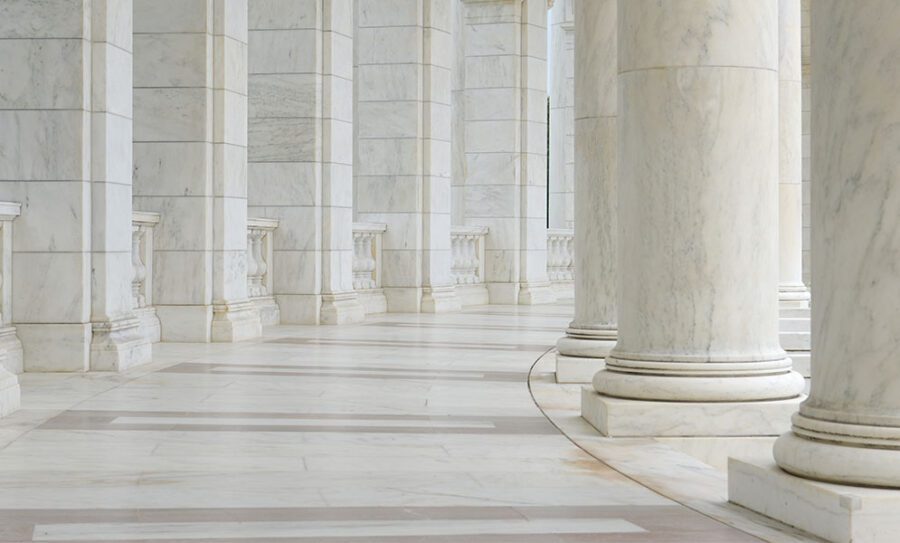The Virtue of Far-Sighted Sacrifice
Honoring the Founders’ Vision for Future Generations
From the earliest days of the republic, American leaders and thinkers have modeled the virtue of far-sightedness—the deliberate choice to value future generations over present ease. The Founders built institutions, defended principles, and laid down their lives not for instant gratification but to secure blessings they might never see. As Thomas Paine wrote during the bleak days of the American Revolution,
“If there must be trouble, let it be in my day, that my child may have peace; and this single reflection, well applied, is sufficient to awaken every man to duty.”1
Sowing for Tomorrow: The Founders’ Legacy
Why They Chose Sacrifice Over Comfort
Their wisdom reminds us that liberty, like all worthy inheritances, must be cultivated with vision, patience, and courage over time. Just as the most faithful planters sow seeds knowing the fruit will ripen long after they are gone, so too the best citizens labor for freedoms they may never personally enjoy. They plant trees of liberty whose shade they may never sit beneath, believing the shelter is worth the sacrifice. This enduring commitment to long-range thinking—choosing what is hard now so that what is good may endure—leads us naturally to one of the most profound declarations of that vision: the closing words of the Declaration of Independence.
“We, therefore, the Representatives of the united States of America, in General Congress, Assembled, appealing to the Supreme Judge of the world for the rectitude of our intentions, do, in the Name, and by Authority of the good People of these Colonies, solemnly publish and declare, That these United Colonies are, and of Right ought to be Free and Independent States;… And for the support of this Declaration, with a firm reliance on the protection of divine Providence, we mutually pledge to each other our Lives, our Fortunes and our sacred Honor.”
A Covenant of Courage
The Declaration’s Final Words and Their Meaning
With these final words, the signers of the Declaration of Independence sealed not just a political revolution but a moral covenant—one that placed the love of liberty above the comforts of life. They risked execution, ruin, and exile. Yet they pledged everything- not for the immediate gain of wealth or safety, but for the birthright of a free republic, knowing full well they might not live to enjoy its fruits.
The Paradox of Liberty
Freedom Requires Present Sacrifice for Future Good
This is the enduring paradox of liberty: it requires men and women to sacrifice in the present for something they may never see. The Founders were animated by what John Adams later described as “a love of liberty with which God has inspired us,”2 one that required hardship, discipline, and long-range vision.
Throughout history, such sacrifice has been the mark of those who truly understood freedom—not as license, but as a sacred trust to be preserved for posterity. George Washington declined a crown. John Adams defended political enemies for the sake of justice. Thomas Jefferson warned that every generation must remain vigilant to preserve the republic. These were not acts of convenience; they were costly, calculated expressions of what Edmund Burke would call the “contract… between those who are living, those who are dead, and those who are to be born.”3
In this way, the American founding was not an act of desperation—it was an act of moral defiance against the tyranny of the urgent. It rejected the quick fix in favor of generational permanence. It chose covenant over comfort.
“To love liberty rightly is to surrender something now for the sake of someone later.”
And yet, this spirit is not unique to America’s revolution. The builders of cathedrals, the framers of constitutions, and the philosophers of liberty have all testified to the same truth: to love liberty rightly is to surrender something now for the sake of someone later.
Biblical Stewardship of Liberty
Liberty, when viewed through a biblical lens, is not merely a political good but a divine stewardship. It is akin to the talents entrusted to the servants in Matthew 25:14–304, where the master gives his goods to each according to his ability and expects a return. In the parable, those who invest and multiply what they have been given are commended: “Well done, good and faithful servant.” But the one who buries his talent out of fear is condemned—not because he lost it, but because he failed to invest it for his master’s purpose.
Why Freedom Is a Divine Trust
Civil liberty, like those talents, is entrusted to us by God—something to be invested, not buried. Its ultimate purpose is to enable obedience to the two greatest commandments: to love God with all our heart, soul, and mind, and to love our neighbor as ourselves (Matthew 22:37–39)4. That neighbor includes those in our lifetime and those yet to be born. To preserve liberty, then, is not only a civic duty—it is an act of love and faithfulness, a return on what has been divinely entrusted to us.
Wisdom from the Founders and Philosophers
What They Believed Liberty Was For
John Locke taught that government exists to preserve not immediate power, but property, peace, and posterity. Benjamin Franklin warned that those who trade liberty for short-term safety lose both. And John Adams envisioned a future where the sacrifices of one generation enabled the flourishing of the next: “I must study politics and war that my sons may have liberty to study mathematics and philosophy… that their children may study painting, poetry, music…”2
A Discipline, Not a Feeling
Rejecting the Tyranny of the Urgent
Ours is a generation called once again to love liberty not as a fleeting emotion but as a long, slow discipline—one that requires principled endurance against the tyranny of now. To reclaim that vision, we must remember that the freedom we enjoy was bought not with convenience but with courage. It must be preserved in the same spirit.
The Reversal of Virtue: Trading Posterity for Comfort
The Founders pledged their lives, fortunes, and sacred honor for a liberty they might not live to see. Today, by tragic contrast, we find ourselves pledging the liberty of our children to preserve our comfort in the present.
In the age of convenience and crisis management, the principle of deferring to posterity has been inverted. Where the Founders sacrificed themselves to secure freedom for their descendants, we increasingly mortgage our descendants’ freedoms to shield ourselves from hardship, discomfort, and risk. The cost is quietly accruing in the form of unsustainable debt, moral fragility, and a culture increasingly allergic to risk—but it is our children who will pay the bill.
Inflation and National Debt: A Quiet Theft
Nowhere is this betrayal more measurable than in the national debt and the expanding monetary supply. As of 2025, the United States carries over $34 trillion in federal debt—much of it accumulated not for nation-building, wartime necessity, or existential threat, but for temporary economic stimulus and entitlement expansion. Each new generation is born into bondage—not of tyrants, but of interest payments.
Inflation, meanwhile, devalues the currency in the hands of ordinary citizens and punishes those who save and plan for the future. It is a hidden tax, disproportionately harming the young, the poor, and the unborn. While it may offer temporary relief or stimulus in the moment, it does so by subtly undermining the ability of future generations to build wealth, invest, and prosper. It allows present generations to consume with abandon while silently diluting the purchasing power of those who follow. This is not merely a policy failure—it is a violation of intergenerational trust.
The Tyranny of Safety: Trading Freedom for Fear
Equally corrosive is our modern obsession with safety—physical, emotional, and social. While prudence is a virtue, fear-driven governance has become a vice. Under the guise of security, we have normalized mass surveillance, expanded bureaucratic authority, and tolerated the erosion of civil liberties. All in the name of protecting ourselves from discomfort, disease, or disapproval.
The COVID-19 pandemic revealed how quickly a society can abandon constitutional principles when fear prevails. Curfews, mandates, and restrictions were enforced with little regard for long-term precedent. Schools and churches closed. Public discourse was censored. Communities were reshaped not by the will of a free people, but by the calculations of centralized “experts.” The question of what these policies would mean for the character, habits, and freedoms of the next generation was seldom raised.
As Benjamin Franklin warned:
“They who can give up essential liberty to obtain a little temporary safety deserve neither liberty nor safety.”5
In our time, this is not just a warning—it is a verdict.
Short-Term Solutions, Long-Term Costs: Rethinking School Choice
In the modern education reform movement, particularly among school choice advocates, we see a troubling trend: the prioritization of short-term solutions without adequate concern for long-term consequences. This was particularly evident at an education independence forum event where a legislator in Kentucky was heard in an emotional outburst saying, “Stop thinking about 20 years from now, we have to fix these problems now!”6 While the desire to rescue children from failing schools is understandable and often urgent, some of these proposals risk undermining the foundation of educational liberty in the name of expedience. When funding mechanisms mirror entitlement programs or link independent education to public dollars, even well-meaning reforms can unintentionally weaken the education free-market that fosters innovation and autonomy. By introducing entitlement-style funding mechanisms and tethering independent education to public dollars, well-meaning reformers may inadvertently destroy the liberty of free market of education that has allowed true innovation and autonomy to flourish.
This short-sighted approach threatens to inflate the cost of educational services and products, invite regulatory creep, and shift the role of parents from autonomous to agents of the state. What appears to be a lifeline today may become a leash tomorrow. If we do not defend the principle that education is the responsibility of families—not the government—we risk constructing a new dependency that will be nearly impossible to unwind. In our attempt to solve a crisis of the moment, we may sacrifice the freedom of generations to come.
“…liberty, rightly understood, is not an indulgence—it is a responsibility…”
A Call to Plant Trees
Our Turn to Endure
Reclaiming Liberty as a Long, Slow Discipline
If our ancestors pledged their lives for liberty, we must pledge our comforts for the same. The true test of a civilization is not how it serves the desires of the moment, but how it safeguards the inheritance of the future. The love of liberty, rightly understood, is not an indulgence—it is a responsibility, a moral and strategic imperative to serve generations we will never know.
Liberty is a tool—not an end in itself, but a means to fulfill the great commandments. It grants us space to worship freely, to serve our neighbors meaningfully, and to order our lives under God’s law without coercion. To preserve liberty is to make room for love. Love for God. Love for others. Love for those whose names we do not know, whose lives we will never see, but whose liberties will be impacted by our stewardship today.
As the ancient Greek proverb teaches,
“Society grows great when old men plant trees whose shade they know they shall never sit in.”
The Charge Before Us
This is the charge before us. Our moment in history demands that we think and act not just as citizens of today, but as trustees of tomorrow. Let us rise to the standard set by those who came before us—who laid down their comforts, and even their lives, to build something that would last.
To honor them, and to preserve liberty for those who come after, we must reject the temptation to live only for the now. We must think generationally, act sacrificially, and lead courageously.
The time to plant is now.
Enjoy our other Education Independence articles.
References





